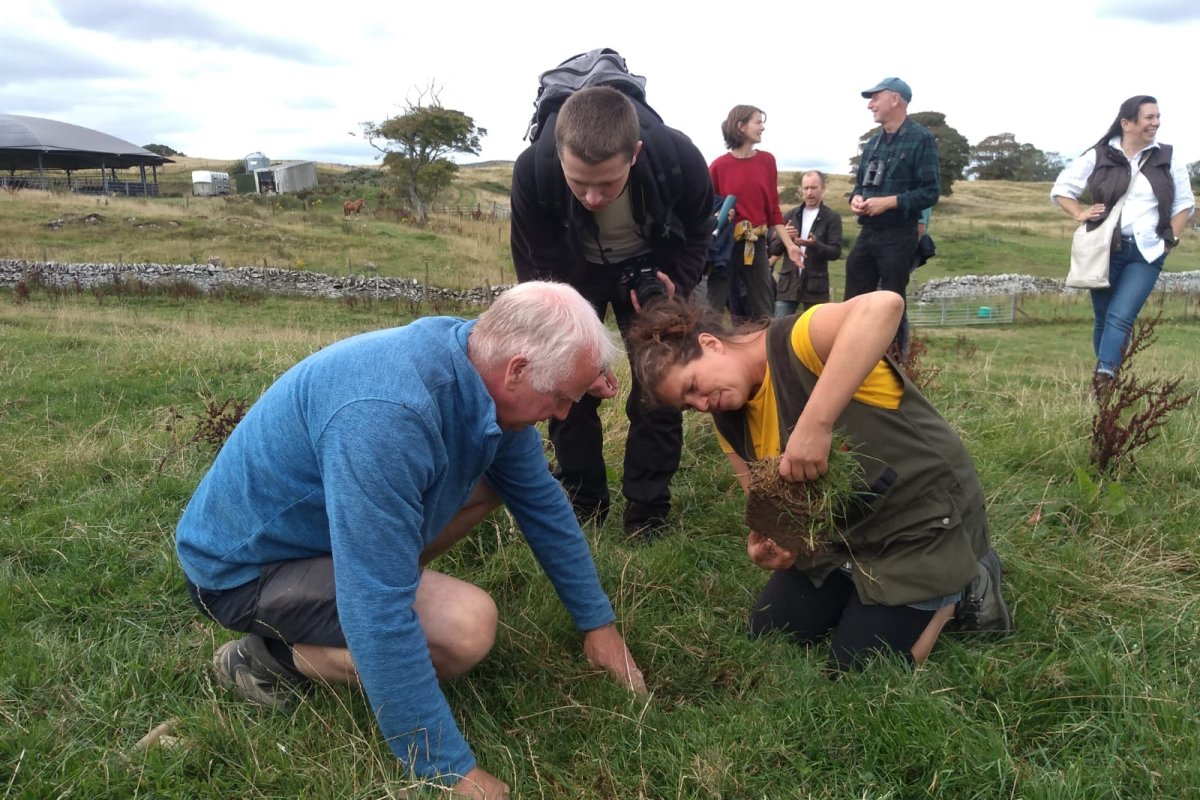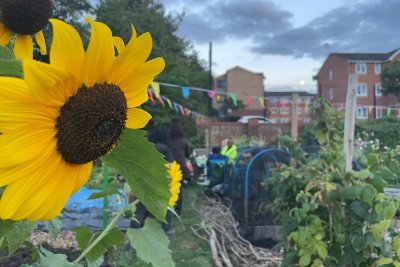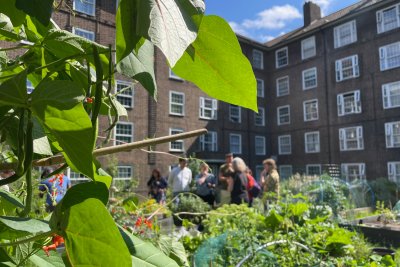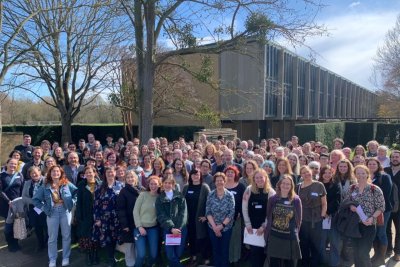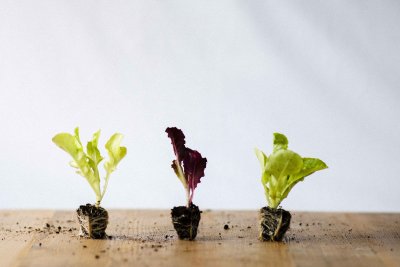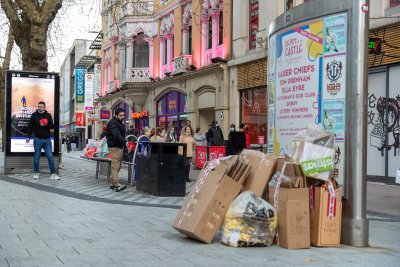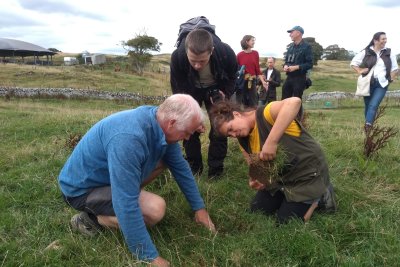 A farm walk in Dumfries and Galloway. Credit: Propagate
A farm walk in Dumfries and Galloway. Credit: Propagate
Dumfries and Galloway is a predominantly rural farming region. They have the most – and the biggest – dairy herds in the whole of Scotland, and a significant part of the county is upland, with a high number of beef cattle and sheep farmers. According to the council’s own report, agriculture and land use make up two thirds of the local authority’s total greenhouse gas emissions. Dumfries and Galloway Council have declared a climate and nature emergency, and have a climate change action plan in place reduce the region’s greenhouse gas emissions.
The food partnership in Dumfries and Galloway secured funding to deliver a Food for the Planet campaign, with two overarching ambitions. First, to inspire and enable farmers to adopt climate-friendly farming practices, by facilitating a space where farmers and food producers could come together regularly for farm visits, group discussions, and peer-to-peer learning. And secondly, to encourage the production, procurement and consumption of local vegetables and sustainably produced meat.
The partnership quickly discovered that there was huge appetite for this work amongst the farming community.
Abi Mordin, the food partnership co-ordinator, says: “Our engagement with farmers has been particularly good. We really feel we have built a grassroots, member and farmer co-created network.”
As well as five successful farm visits, each attended by 25 farmers, they connect with a wider group of farmers and producers though social media and a weekly mailout. They have also established the Soil Health Learning Group for farmers to learn from experts and provide peer support as they use the SoilMentor platform to track their soil health. The group is made up of 17 committed members who attend weekly meetings online. Members of the Soil Health Group come from a broad spectrum of farming types and sizes – some are right at the start of their regenerative journeys, and others have been trying new things out for a number of years.
To support the farmers, the food partnership have also collated a library of resources on topics from agroecology and low-input farming to sustainable diets.
“The best thing about farming regeneratively is seeing how alive the farm is, from the plant life in the fields to the birds and bees and all the little bits that are in between – the farm literally buzzes with life… And the livestock thrive in this busy environment. Everything seems to work very well together.” - Ruth from Lower Auldgirth, taken from the Voices of Farmers recordings.
The work has also focused on raising the voices of farmers through a series of recordings, so they can tell their own stories about living and working on the land. This was a short project in which five farmers volunteered to speak about their reasons for shifting towards regenerative practice.
“Regenerative agriculture shows us that we can have an abundance of healthy, good food and have a really thriving wildlife population around us at the same time, and that we can build our soils… so that people in the future can also do the same.” - Naomi from Suie Fields, taken from the Voices of Farmers recordings.
This work has enabled and supported the creation of the Glenkens Food Hub, a producer-led cooperative group, which aims to provide “food that has been sustainably and ecologically produced, in a way that is good for biodiversity and nature.” The hub exclusively supplies produce from within Dumfries and Galloway, in a 30-mile radius of the hub.
The partnership continues to engage with the procurement and school food teams in the local council, and are supporting progress towards setting up a local abattoir.
Abi Mordin says: “The farmers we work with are passionate about shifting the agricultural narrative from one which extracts from nature, to one that works in harmony with nature. People are making their own changes but support is needed for a just transition to create healthier living soils and be part of climate and nature friendly food systems.”
Food for the Planet: Food for the Planet is helping local authorities, businesses and organisations take simple actions to tackle the climate and nature emergency through food.
Sustain
The Green House
244-254 Cambridge Heath Road
London E2 9DA
020 3559 6777
sustain@sustainweb.org
Sustain advocates food and agriculture policies and practices that enhance the health and welfare of people and animals, improve the working and living environment, promote equity and enrich society and culture.
© Sustain 2024
Registered charity (no. 1018643)
Data privacy & cookies
Icons by Icons8
